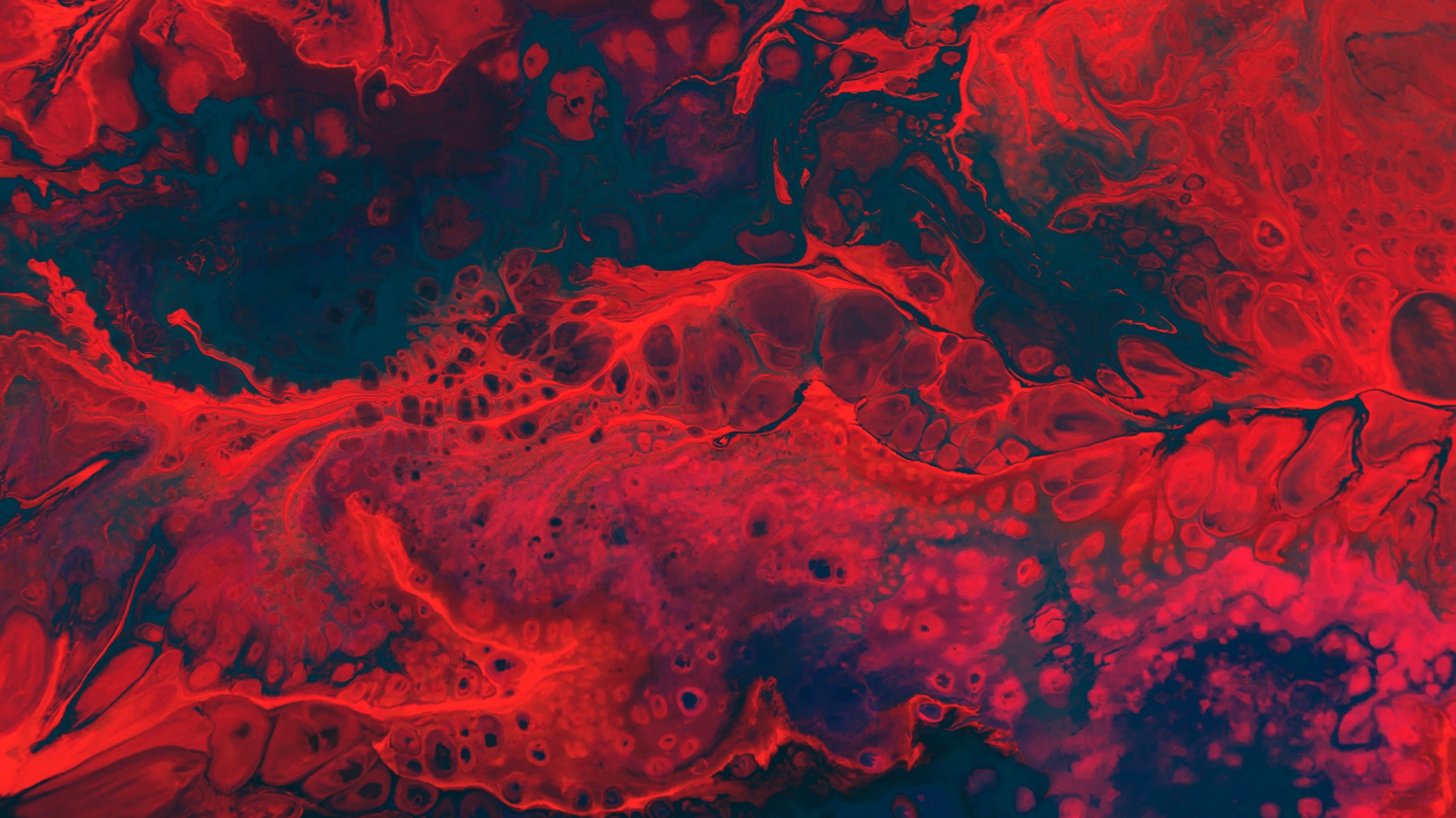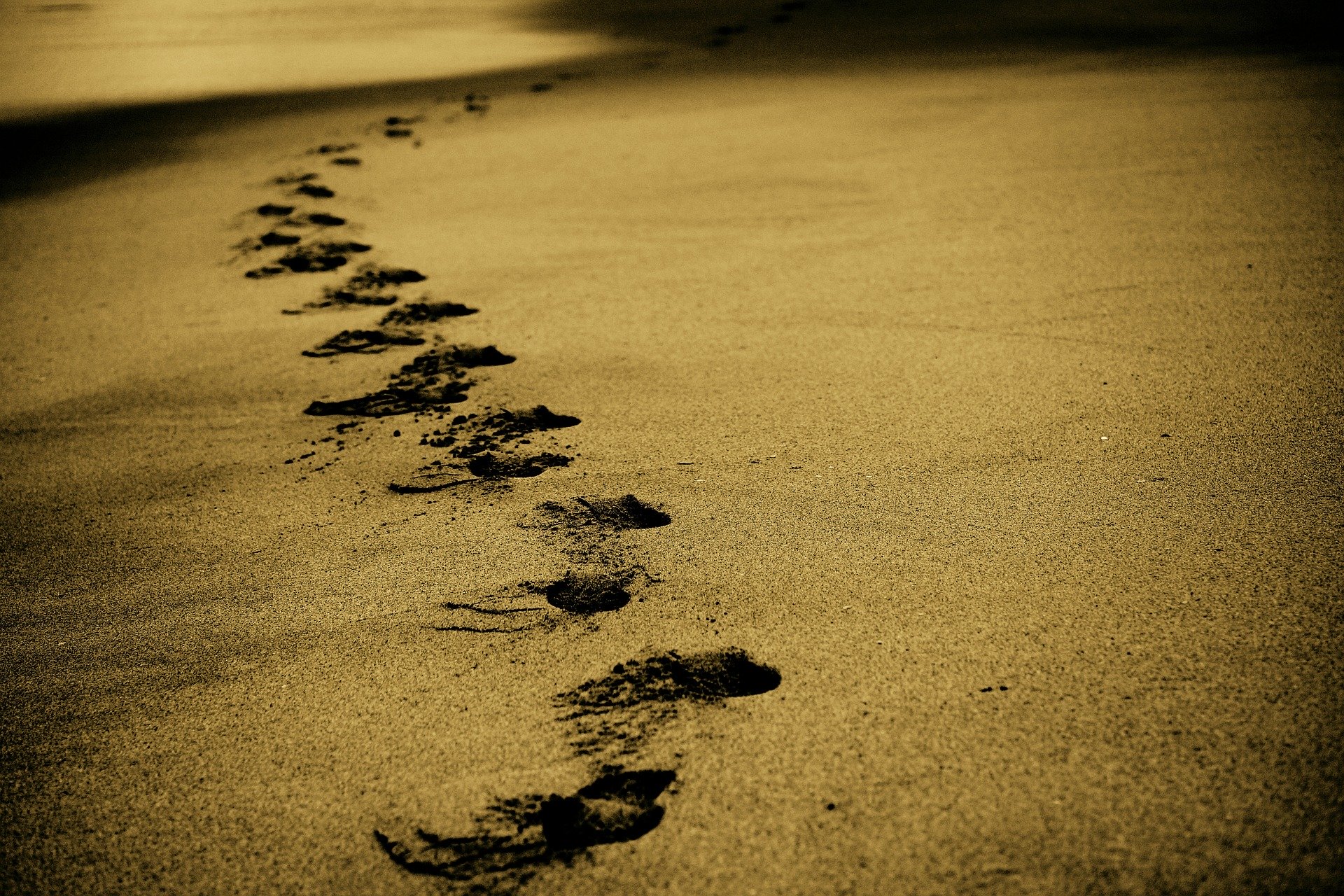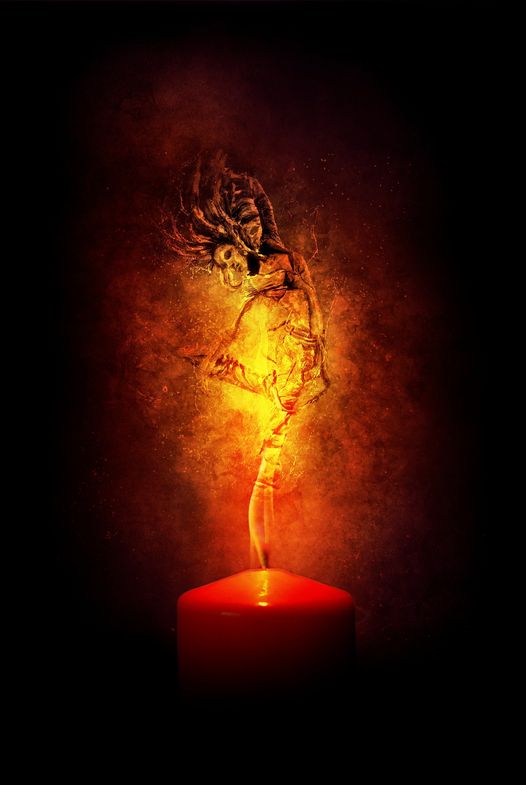Integrating the dead in life
If you know your Dracula you might be familiar with the phrase “for the dead travel fast” (also since it has found its way into popular cinematic adaptations) and think that I misquoted Bram Stoker in this post’s title. However, I am actually quoting (in translation from German) Gottfried August Bürger whose ballad “Lenore” is said to have been Stoker’s source for this line. Whether or not “Lenore” inspired Dracula, Bürger used the phrase “the dead ride fast” repetitively and did not use the verb ‘travel’ but ‘ride’, because the main part of the poem is exactly about the ride of Lenore on horseback with her (dead) fiancé, his ghost, back to his/their grave. Some interpreters construed “Lenore” to be a ballad related to vampire lore which others consider (and I agree) to be more of a reaction to Stoker’s usage (i.e. he alluded to the poem in Dracula so it has to be a ‘vampire poem’). The connection we can find between both, however, is that there seem to be certain rules which pertain to ghosts like Lenore’s fiancé and vampires alike, for example that they can only be out at night and that sunlight is harmful. It is exactly these kinds of ‘regulations’, of folk lore on different kinds of ‘dead’, that I want to remind you of right now.
For such folk lore also applies to the image and connection that came to my mind when reading Bürger’s ballad and which I think is being alluded to in his “the dead ride fast”, namely the Wild Hunt. No matter whom you put as leader of the Hunt (Odin/Woden, ‘Frau Holle’, Hecate…), the main party of ‘hunters’ is said to consist of souls of the dead and often ‘restless souls’, which are in some beliefs not only part of a storm (as the phenomenal appearance of the Wild Hunt) but the wind in general.1which might not be that coincidental if we consider ‘soul’ and/or ‘vital spirit’ to be related in many languages to ‘wind’ and ‘breath’. Again, folk lore, religious belief, has/had pretty clear ideas on where the dead are to be located, often in relation to their way of dying, whether their progeny carry out the funerary and postmortal rites diligently and so on.
Funerary and postmortal rites just as ‘afterlife’ beliefs have been central to any and all religious traditions or cultures over the world, and to my knowledge there has yet to be found one that did not care at all about the dead in regards to both body and soul(s). Admittedly, the Jewish belief about ‘Sheol’ came pretty close to ‘not-caring-much’ about the soul’s after-life and much more about a pious and devout life while living. It is no surprise really that in its wake both other Abrahamic, monotheistic religions, Christianity and Islam, developed beliefs about the Day of Judgment and the transcendent ‘beyond’ which in my view formed the optimal breeding ground for contemporary (in particular Western but spreading over the globe) beliefs about death, dying and the dead. Or better yet, ‘missing beliefs’ or ‘non-beliefs’. For it is in our modern society that those beliefs, this knowledge and lore and especially also care about the dead (souls), which had been so central to mankind from time immemorial, are vanishing and getting lost.
I am not referring to the funerary rites and burial customs per se in this case; or memorial services. Even atheists and agnostics have them in place. We also all know festivals of the dead, the Catholic Requiem and so on. Remnants of death rites. I already noticed in my previous musing that those are much more often focused on the living, the mourners, than the dead, however. Here, anything relating to the dead themselves, like specific postmortal rites, is very often meant either to ‘reincarnate’ them and/or to remember them, their personality as it was. The soul in form of this particular person is thought to be in a place that proves to be a rather abstract concept: the beyond, no matter which name it is given, does not have space in our fully accessed/discovered cosmos – in contrast to the ‘not-from-this-world-but-definitely-in-this-cosmos’ places of the dead in earlier beliefs, where the Underworld or the land of the dead was pretty exactly located and often (even if only under severe difficulties) accessible in one way or the other. Just because a modern heathen or pagan or polytheist uses the name (and maybe some known elements) of the place of the dead in question, i.e. of the tradition s/he recreates or reconnects to, does not mean that the concept and idea s/he has about this place deep within his/her mind is not much more abstract, transcendent, ideal, just as that of some nebulous ‘paradise’ or ‘heavens’. Our modern scientific, rational minds ‘know’ that the Underworld, the land of the dead, cannot be ‘here’. So even in spiritual or religious people the seed has been planted and grown, which fully blossoms in modern day secular society: now focus lies foremost if not solely on the disposal of the body and remembering the person. And I intentionally use the word ‘disposal’ because there is no question that there has always been pragmatic reasoning in funerary methods, and yet, contemporary concerns seem much more a question of economy and finance, of status and ecology. In earlier times they had always been accompanied by postmortal, pre- and post-burial rites that made sure about the well-being and the integration of the dead soul(s) (in both, the locations of the dead and the world of the living). New inventions, e.g. where the ashes of the dead one are turned into a diamond or the buried body will ‘grow into a tree’ all have certain appeals (while also being well marketable to contemporary concerns and needs), and yet I am pretty certain that they illustrate what I said before: focus on the disposal of the body and remembering the person. The soul, the true dead, is at best (sarcasm) banned to ‘the beyond’ (of whatever name) or right away to nothingness and the fading past (meaning the fixed points in time within our linear thought where our beloved were still physically present, i.e. memories of them). Unlike the earlier European beliefs that I just described above (and that have their equivalents in all other parts of the world), where even the ‘restless souls’ had a place in the here and now, were still around after their death, took part in the life of the living – clearly to be felt and heard and seen, in this case in the wind and storms. The dead were still around!
And they still are (or at least can be). Yet, the more we do not care about them, with the only exception being the remembrance of our most loved lost ones, the less they will be able to enrich our lives and bestow their blessings on us. Which again (in my opinion) lies at the very heart of most successful magic and a truly magical, vital life2That form of life which the Kosmic Gnostics in reference to Alfred Schuler call “open Life”; compare Schuler, Alfred. “Ur-Gnosis” in: Klages, Ludwig: Of Cosmogonic Eros. München: Theion Publishing, 2018.. In fact, the integration of the Dead is one of the most essential magical acts. I think it quite ironic how many occultists try to dabble in necromancy and/or evoke demons and even gods that are strongly connected to death, the Underworld, the dead, and yet, they do not have the slightest form of ancestor veneration and/or veneration of the dead established. Now you might wonder why I emphasize the significance of ancestor veneration again since I already did so in my last post and yes, as I pointed out in “The Beauty of Transience” already, such a veneration goes hand in hand with realizing death as a part and not the end of life and with the acceptance (though not necessarily understanding) of mortality. However, this is just one (important) aspect of its significance and here now I am more concerned with pointing out how important an integration of the dead is and has been for life, death, and magic, and how mankind is more and more moving away from it.
Death and dying have merely become abstract ideas and the dead are ignored and excluded. Now you might want to disagree by saying how we are confronted with death every day. Fictional as in books, movies, computer games, and non-fictional on the news, in social media etc. And yet, how ‘real’ is it to us as long as it does not ‘hit home’? And those who actually react more emotional to the news etc., are you really ‘relating’ or is it not rather your idea of how to react because of the integral concept you have of yourself, the persona you created (e.g. I am caring, kind, empathic)? People who lost or are losing someone very close to them are far from being unaware of death, of course, and it feels much more concrete and personal than any death toll in the headlines. However, a large part of their pain and grief lies exactly in the loss, the disappearance of the loved one, which would probably be as severe but for a much shorter amount of time if the dead were experienced as still being a part of their lives other than in memory. Awareness of death is not the same as integrating the dead.
“The dead ride fast”… the ghost of Wilhelm, Lenore’s fiancé, while bound to his grave (he must return there) is drawn to the living by the longing to be with his beloved and thus takes her with him. This further similarity to Dracula is also another similarity to the Wild Hunt which is known to have taken ‘passengers’, even though in contrast to Lenore they did not die themselves (to my current knowledge). The fast-riding, restless souls had been a more or less clearly defined group of the dead whom you did not necessarily want to invite into your life although you might have wanted / want to join their ride for a while (as “witches” have been said to do). In our time and outside of any societies where ancestral rites are still observed prominently, I think that there are many more restless souls out and about who are simply lost because they do not have a place to rest AT ALL. Therefore, it seems the least we can do as a counter-movement is to offer the collective dead the praise and respect they deserve and provide the “ambient dead” (quoting David Beth) in our own surrounding with an ‘anchoring place’. To my knowledge, the Kosmic Gnosis is one of the few contemporary, modern esoteric and occult currents (not solely rooted in a traditional religion or culture), where the integration of the dead is not limited to the veneration of ancestors by blood or lineage alone but includes and integrates the dead (personal and collectively) not only in individual, personal rites but also in very central, group-specific initiations, rituals and sorcery. Real necromancy only happens with constant integration of the dead – who are not exiled to some transcendent beyond!




Yes, awareness of death is not the same as integrating the dead. And erecting altars to mortality is not the same as summoning the dead into our life. One does not exclude the other though. I completely agree with you that it is ridiculous to work with the underworld without caring for the dead but… it should be known that, when you work ritually with the souls of the dead, they often have a nasty habit of not staying where you put them. And not all of them care about our wellbeing, wenn wir die Toten beschwören, kommen nicht alle to bestow their blessings on us. While some of them are installing themselves as protective genius loci in the house of the living, others possess living souls to act out pure kosmic evil. We saw the armies of the dead march through Europe not that long ago. The art of summoning the dead is dangerous, and few people are equipped to deal with them successfully. That news should be spread. Great text in any case, thank you Jessica!.
I do not think that one excludes the other – it was my point exactly that both are important aspects of the whole death-dead-ancestor-veneration complex so to say. While I hold “evil” to be a very subjective idea and transference from us unto entities that do not operate in these categories, I certainly agree that one should not deal ‘casually’ with necromantic practices etc. My text and intention also goes beyond the mere ‘instrumentalization’ of the dead, however, although this has its place, and emphasis is much more on a (re-)shift in our ‘relation’ that will in turn facilitate another relation to the “pandaemonic all”, the kosmos, Life etc. Support the will to Life instead of the will to power (to refer back to “The Heretic Pathways of the Kosmic Gnosis”). You are right, work with souls, especially unknown ones, can go wrong and people should, as always, certainly do their studies, preparations and question their own motives… Thanks for sharing your thoughts and appreciation!
Dear Jessica,
thank you for your comment. I agree with all of your points. The problem of evil is too vast to discuss in a few lines. We know it when we see it and we saw it unfold throughout all ages of human history. But you’re right, I should probably not have used the word in association with the word “kosmic”. Evil is a human concept that cannot be applied to the natural world or the universe. But then again, is “evil” not an essential part of what we call “cosmic horror”, an expression that you may feel more comfortable with? Sometimes I wonder if there’s not something like an “evil” wind that moves through time and space, capable of possessing the souls of the living. Like cosmic tides that go in and out. We ultimately don’t find conclusive reasons why indescribable horrors were acted out by human beings on this planet. There always are rational reasons (political, social, economic etc.) but what is the decisive spark that makes it all turn into a Weltenbrand? Where does that horror come from? And why do “ordinary” people suddenly behave like monsters. But anyway, I agree with all you say: to care for the dead before even thinking of instrumentalizing them, the necessity of building a living relationship with the universe or the “pandaemonic all”, and to support the will to Life rather than the will to power. Even if power is another of those ambiguous beasts. Magic and sorcery would be not much without it but… that would open up an entire new discussion. Thanks again for the beautiful essay!
Thank you, interesting points! The question of evil is certainly one to ponder again and again…